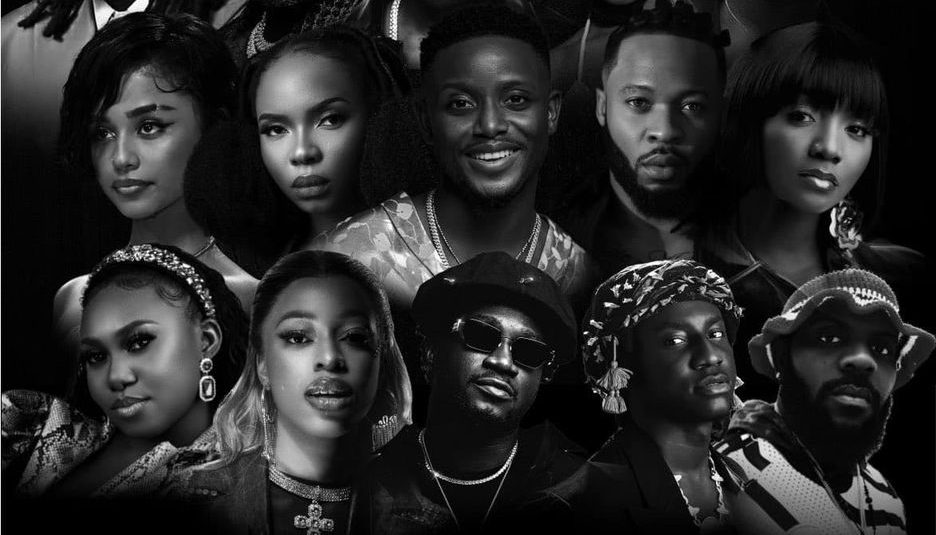If this is truly Back to Base, then maybe the 18th edition of the Headies should take us back to basics, to build an award system that finally aligns with the excellence of our music.
By Abioye Damilare Samson
After two years away from Nigerian soil, the Headies Awards, Nigeria’s longest-running music award ceremony, made its highly anticipated return to Lagos. On Sunday, April 27, the 17th edition was held at the Landmark Event Centre, Victoria Island, Lagos, gathering titans and rising stars of the music, film, and culture industries under one roof.
Branded under the theme “Back to Base”, the night marked the end of the award’s brief foray abroad and a return to the soil that birthed it. More than just a homecoming, the evening was positioned as a cultural reset — a chance to reconnect with the roots of Nigerian music, while acknowledging its journey and subtly reckoning with the distance the award system still has to cover.
Since its inception in the early 2000s, the Headies, founded by Ayo Animashaun, has been a key compass in charting the evolution of Nigerian Pop music. Over the years, the award has crowned many Afro-Pop stalwarts like 2Baba, Psquare, Wizkid, Tiwa Savage, Davido, Burna Boy, and many more.
In recent years, it has also celebrated the new vanguard, including Rema, Fireboy, Ayra Starr, Tems, Victony, and many other emerging Afro-Pop stars, who are shaping the sound of today and carving out bold new frontiers for Afro-Pop worldwide. At its best, the Headies Awards has been a mirror reflecting Nigerian music’s finest moments: its triumphs, transitions, and seismic shifts.

Yet, while the artistes have grown and the Afrobeats sound has become a global cultural behemoth, the infrastructure behind the Headies Awards remains worryingly static. Much like previous editions, this year’s ceremony was marred by structural lapses. Despite its return home, production flaws were front and centre: sound glitches disrupted performances, transitions between segments felt clunky, and some award announcements were made with awkward confusion.
The red carpet, scheduled for 5 p.m., didn’t kick off until 8 p.m., while the main award show, billed for 8 p.m., only began around 10 p.m.—a frustrating delay for both physical and online audiences. Perhaps most disheartening was the continued sidelining of several categories. Winners in key technical segments, such as Best R&B Single, Best Collaboration, Best Rap Album, Lyricist on the Roll, and many others, were neither announced nor honoured on stage. Instead, these awards were quietly published online several hours after the show had ended.
In spite of these lows, the night was not without its highs. One of the most satisfying moments came with Odumodublvck’s well-deserved win in the Next Rated category. In an era where Pop dominates the airwaves, Odumodublvck has carved a lane for rap, championing Nigerian Hip-Hop with a streetwise candour that he tagged “Okporoko” and sonic ferocity that’s impossible to ignore.

The award felt especially full-circle, as it was presented by Davido, who won the same title in 2012. It was a subtle nod to continuity, legacy, and the resilience of genre experimentation in a pop-saturated sonic climate.
On the performance end, Flavour delivered what was arguably the best set of the night. Bursting on the stage with his evergreen groover “Ashawo” released in 2008, and transitioning smoothly into his 2023 hit track, “Big Baller”—the same song that earned him the Best Afrobeats Single award—his set was a masterclass in showmanship.
Right from the pristine sound coordination to flawless synergy with his dancers and band, Flavour reminded the audience what it means to own a stage. Nasboi, too, brought spark to the evening with a no-lip-sync performance of his hits “Umbrella” and “Small Money”. In another deeply affecting moment, the hall fell quiet as a minute of silence was held for the late Mohbad, with his songs rippling through the hall’s air.

But the night was also littered with baffling decisions, perhaps none more shocking than the Work of Art album by Asake losing the “Album of the Year” title to Rema’s sophomore album, HEIS. While Rema’s album is a towering body of work in its own right—ambitious, layered, and genre-bending—it’s difficult to justify its win over Work of Art, an album that contains countless quality records, and hits songs that cemented Asake as the crown jewel of the Street-Pop renaissance.
It wasn’t the only curious outcome. “Cast” by Shallipopi, a Street-Hop anthem, somehow clinched Best Rap Single, despite the category being stacked with more conventional and deserving Hip-Hop entries. Even Shallipopi himself acknowledged the mismatch on X, suggesting the award should’ve gone to a more representative rap act.

And perhaps the biggest snub of the night came in the Rookie of the Year category, where Llona, whose breakout run and melancholic sound have marked him as a star-in-waiting, lost out to Zerry DL, in a decision that left many people puzzled.
None of this is new. The cracks in the system have been showing for a while now. But in a year where the theme was “Back to Base”, the expectation was that the return home would be met with renewal. Sadly, the structural flaws persisted: plaques weren’t handed to winners like Shallipopi on stage, several presenters fumbled their lines or stood blank-faced on stage, and many winners for several major categories were, once again, never announced.
Still, the essence of the night, from the music, the fashion, to the movement, remains. Nigerian music continues to soar globally, stretching its sonic limbs across continents, shaping new sounds and possibilities. But if our award systems are to keep pace with the music, then they must evolve too.
There’s too much brilliance in this ecosystem to let the rot in the system dim its light. It’s time for the Headies and every other cultural institution around it to match the excellence of the artistes it was built to honour.
Because if this is truly Back to Base, then maybe the 18th edition of the Headies should take us back to basics, to build an award system that finally aligns with the excellence of our music, honours every craft with intention, and reflects the global stature Nigerian Pop has earned.
Abioye Damilare is a music journalist and culture writer focused on the African entertainment Industry. Reading new publications and listening to music are two of his favourite pastimes when he is not writing. Connect with him on Twitter and IG: @Dreyschronicle



